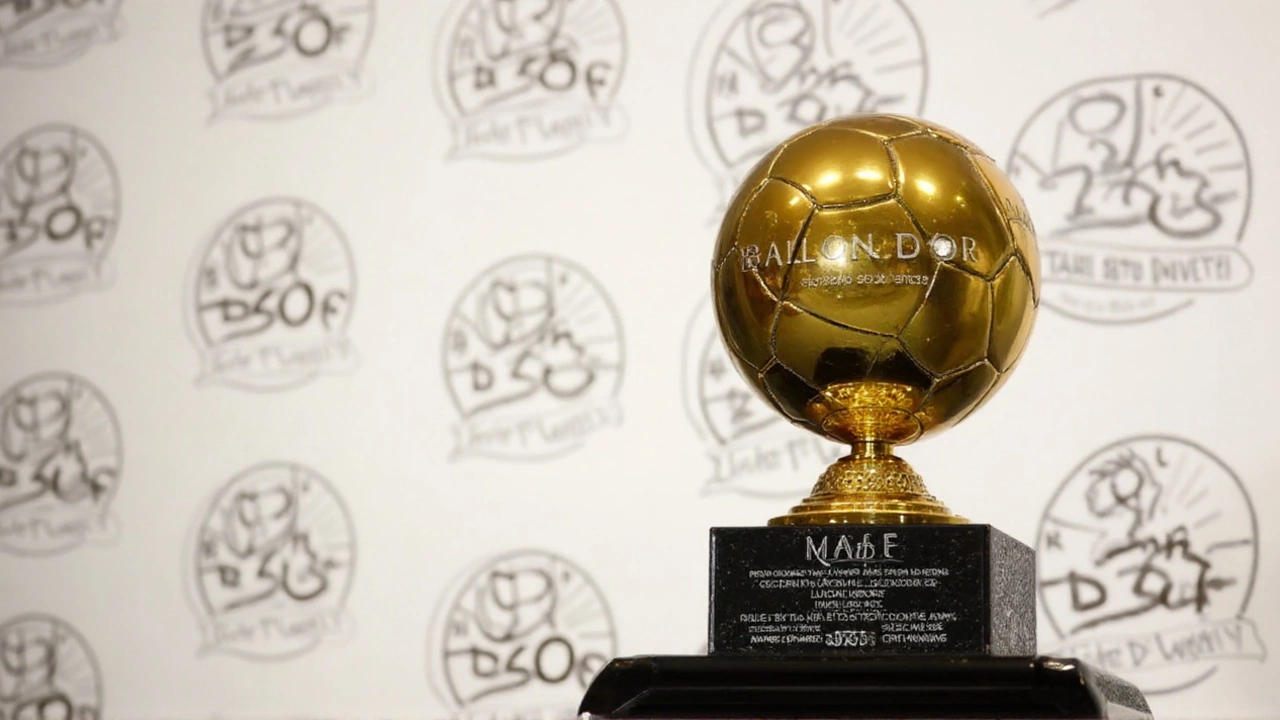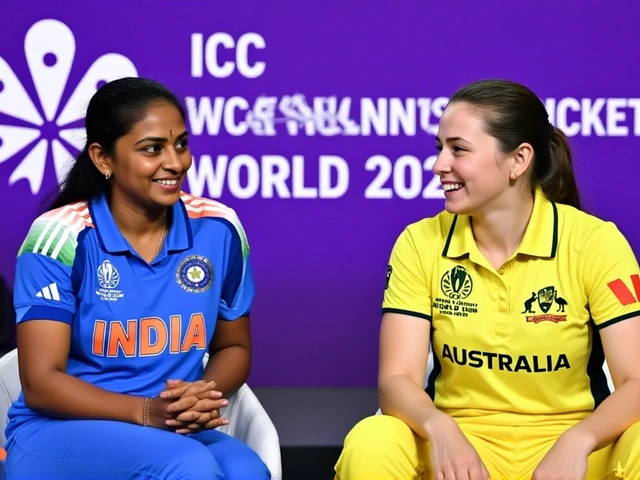PSG flood the men's shortlist. A 19-year-old from Barcelona is in front-row contention. And last year's winner isn't even on the list. The stage is set for a very different awards night in Paris as the full slate of 2025 Ballon d'Or nominees lands ahead of the September 22 ceremony at the Théâtre du Châtelet.
The organizers are promising a global celebration of the game, and the nominations back that up. Europe still sets the pace, but the cast spans clubs from the Premier League, LaLiga, Ligue 1, and beyond, plus a women's field that stretches across continents. The question now is simple: who did enough over the past season to take home the biggest individual prize in football?
The ceremony returns to the same Paris venue that has staged some of the award’s most dramatic nights. France Football convenes an international jury each year, weighing individual performance, impact in big matches, team trophies, and consistency across the season. Form in the European spring still matters; so do defining Champions League nights and major international bursts.
The men's race: favorites, rivals and a Scottish shock
Two names sit on top of the conversation for the men's prize: PSG's Ousmane Dembélé and Barcelona’s Lamine Yamal. Their cases could hardly be more different—one a seasoned international who finally found an injury-free runway, the other a teenager who looks like he skipped the learning curve entirely.
Dembélé's claim is built on moments that live and linger. He was integral to PSG's first-ever Champions League title run last season, providing tempo, width, and incision in tight knockout games. It was the version of Dembélé scouts always believed existed: relentless in transition, cleaner in decision-making, and healthy at the business end of the season. Factor in domestic trophies and the optics of delivering PSG’s European breakthrough, and his file is heavy with the kind of peaks the Ballon d'Or tends to reward.
Yamal, just 19, brings a different flavor. He stacked decisive contributions for Barcelona and then carried that form into Spain duty, sparking the Messi comparisons that never seem to stick to anyone—until now. Age helps his narrative, but it’s the substance that matters: the vision between the lines, the calm in crowded boxes, the quick reads in big matches. If voters lean toward the sport’s next standard-bearer, he has a clean path to the podium.
Beyond the headline duo, the field is thick with star power. Real Madrid land two heavy hitters in Jude Bellingham and Vinícius Júnior, underlining LaLiga’s footprint in the final cut. The Premier League sends familiar leaders—Liverpool’s Mohamed Salah and Virgil van Dijk, plus Arsenal’s Declan Rice—whose seasons blended leadership with high-leverage performances. Barcelona's Raphinha also features after a year that quietly added end product to his pressing and work rate.
PSG’s depth on the list is the big structural story. With nine nominees—among them Dembélé, Désiré Doué, Achraf Hakimi, Khvicha Kvaratskhelia, Fabián Ruiz, and Vitinha—the French champions have both the individual standouts and the supporting cast that reflect a club operating at full tilt. Stacking names isn’t enough to win the Ballon d’Or, but it does track with a season in which their collective dominance finally translated to Europe.
The most surprising entry? Scott McTominay. The Scotland international made history as the first Scot nominated in 38 years and did it off the back of a breakout debut season at Napoli, where he drove them to the Serie A title and took league MVP honors. Scots don’t tend to appear on this shortlist—it demands production at the highest level and a spotlight that’s hard to come by. McTominay earned both.
One notable absence shapes the race too: Rodri, last year’s winner, misses out. A serious knee injury in September kept him out until the penultimate game of Manchester City’s league campaign. That gap in the season cut the legs out from under a repeat bid. The award’s timing is unforgiving; when you sit out months while rivals rack up knockout heroics, the field moves on without you.
LaLiga’s presence—eight nominees across clubs—suggests the league’s top end stayed sharp despite the Premier League’s financial muscle. But the split across England, Spain, and France also hints at a broader truth: no single team or league cornered greatness this year. Instead, the season gave us pockets of brilliance all over Europe, with voters set to judge which moments felt biggest when it mattered most.
- Men’s headline contenders mentioned: Ousmane Dembélé (PSG), Lamine Yamal (Barcelona)
- Other men’s nominees highlighted: Désiré Doué, Achraf Hakimi, Khvicha Kvaratskhelia, Fabián Ruiz, Vitinha (PSG); Mohamed Salah, Virgil van Dijk (Liverpool); Declan Rice (Arsenal); Raphinha (Barcelona); Jude Bellingham, Vinícius Júnior (Real Madrid); Scott McTominay (Napoli)
- Major snub: Rodri (out injured most of the year)
That mix gives the men’s award a sharpened identity: a direct shootout between two compelling peaks—Dembélé’s trophy-weighted season and Yamal’s sky-high rise—inside a deep, credible field that will split votes across leagues. It’s close enough that even late-summer form before the voting cutoff could tilt minds on the margins.
A wide-open women's field and the coaching chess match
The women’s Ballon d’Or list reads like a map of the sport’s growth. Arsenal lead all clubs with seven nominees, a nod to depth, cohesion, and a recruitment model that keeps them balanced across positions. Barcelona remain a magnet for elite talent, and England’s top sides are squarely in the mix. But the headline is the spread of star power across continents.
Aitana Bonmatí, again among the favorites, brings Barcelona’s rhythm and ruthless control into the conversation. Lucy Bronze, now with Chelsea, anchors the defensive side of the ballot with the kind of leadership voters remember when the games get tight. Arsenal’s contingent—featuring Mariona Caldentey, Steph Catley, and Emily Fox—shows how far the club’s spine reaches: no single scorer dominating the narrative, just high-level performers in every line.
Crucially, the roll call isn’t Europe-only. Zambia’s Barbra Banda (Orlando Pride) is here on merit, with a scoring profile that travels. Temwa Chawinga (Kansas City) brings Malawi onto the shortlist with the kind of direct threat that unsettles back lines in any league. Haiti’s Melchie Dumornay (OL Lyonnais) extends the Lyon tradition of match-winners who thrive in Champions League moments. That global spread does more than tick boxes; it reflects competitive balance as more leagues professionalize and lift training and analytics standards.
On the touchline, the awards season turns tactical. The men’s coaching honor—the Johan Cruyff Trophy—drops five big names into a debate about systems, adaptability, and late-season composure. Antonio Conte (Napoli) is there with a title-winning edge. Luis Enrique (PSG) has the Champions League breakthrough and a team that improved under pressure. Hansi Flick (Barcelona) has overseen a retool that leaned into academy players without losing punch. Enzo Maresca (Chelsea) and Arne Slot (Liverpool) make the list as managers who changed team identity quickly, adding structure and intent within months.
The women’s coaching nominees tell a similar story with different ingredients. Sonia Bompastor (Chelsea) engineered cohesion under high expectations. Arthur Elias (Brazil) gets credit for a national-team philosophy that aims for control without blunting creativity. Justine Madugu (Nigeria) rewards a program thriving on clarity and resilience. Renée Slegers (Arsenal) offers the blueprint for sustainable squad building. Sarina Wiegman (England) remains the benchmark for tournament preparedness and problem-solving.
Clubs, meanwhile, have their own stakes. In the men’s Club of the Year race, PSG’s nine total nominees scream scale and planning. Barcelona and Liverpool count four apiece, a reminder that both projects are more than one or two star names. In the women’s category, Arsenal’s seven nominations top the table, followed by Barcelona’s six and Chelsea’s four. These tallies don’t guarantee trophies, but they do reflect talent identification, fitness management, and the tactical systems that make good players look great.
- Women’s nominees mentioned: Aitana Bonmatí (Barcelona); Lucy Bronze (Chelsea); Mariona Caldentey, Steph Catley, Emily Fox (Arsenal); Barbra Banda (Orlando Pride); Temwa Chawinga (Kansas City); Melchie Dumornay (OL Lyonnais)
- Men’s coaching nominees: Antonio Conte (Napoli), Luis Enrique (PSG), Hansi Flick (Barcelona), Enzo Maresca (Chelsea), Arne Slot (Liverpool)
- Women’s coaching nominees: Sonia Bompastor (Chelsea), Arthur Elias (Brazil), Justine Madugu (Nigeria), Renée Slegers (Arsenal), Sarina Wiegman (England)
- Clubs leading nominations: PSG men (9 total nominees); Barcelona and Liverpool men (4 each); Arsenal women (7), Barcelona women (6), Chelsea women (4)
How will voters split hairs? In the women’s race, two things usually swing decisions: Champions League impact and consistency against top-five league opposition. Arsenal’s spread of nominees shows shared responsibility, which helps their club case but can dilute the individual one. Barcelona’s stars often shine in spring, when ballots start to form in voters’ minds. And the growing weight of NWSL and French league performances—see Banda and Dumornay—will test how global the jury’s lens truly is.
Selection mechanics matter too. France Football’s process taps international journalists with a brief to prioritize the season’s peak level, team success, and sporting behavior. The timeline captures domestic leagues and European competitions through the late spring, plus international windows. That’s why late Champions League rounds keep shaping legacies, and why injuries, like Rodri’s, can turn a once-clear picture into a new discussion.
There’s tradition in the mix as well. On the night, the room will recognize individual greatness, but it also doubles as a state-of-the-game snapshot. The men’s field has a tug-of-war between an established star finally delivering the ultimate club prize and a phenom redefining what 19 can look like. The women’s field has genuine geographic breadth. The coaching honors argue for systems and adaptability. The club awards reward infrastructure and squad architecture.
A few storylines to track in the weeks ahead: Will PSG’s collective dominance amplify Dembélé’s case or split the vote among teammates? Does Yamal keep stacking early-season form that’s fresh on the mind when ballots go in? Can one signature Champions League performance from a rival—Bellingham or Vinícius, for instance—narrow that two-horse gap? And in the women’s race, do Arsenal’s many nominees turn into a single standout narrative, or does Barcelona reclaim the individual spotlight?
By the time Paris turns the lights on at the Théâtre du Châtelet on Monday, September 22, the shape of the night will be clear. Voters tend to reward clarity: a player who delivered in the biggest windows, a coach who solved problems when the pressure spiked, and a club whose structure carried stars through the year. The shortlists are the map; the last stretch of performances will decide the route.
For anyone planning the watch-party bingo card, here’s the spine of the night. The men’s award frames a clean duel between Dembélé’s peak and Yamal’s meteoric rise, with heavyweight challengers lurking. The women’s award sets Europe’s superclubs against a truly global surge. The coaching trophies spotlight managers who built identities quickly and sustained them. And the club honors highlight rosters constructed with intention.
It all funnels into one moment: when the envelope opens and the room pauses. The rest of the year keeps rolling, but the name read out in Paris becomes shorthand for a season. That’s the strange power of the Ballon d’Or—one night that settles months of arguments, at least until the next round kicks off. Expect debate before, during, and after. That’s half the fun.
Ballon d'Or 2025 has its nominees. Now comes the hardest part: choosing.




